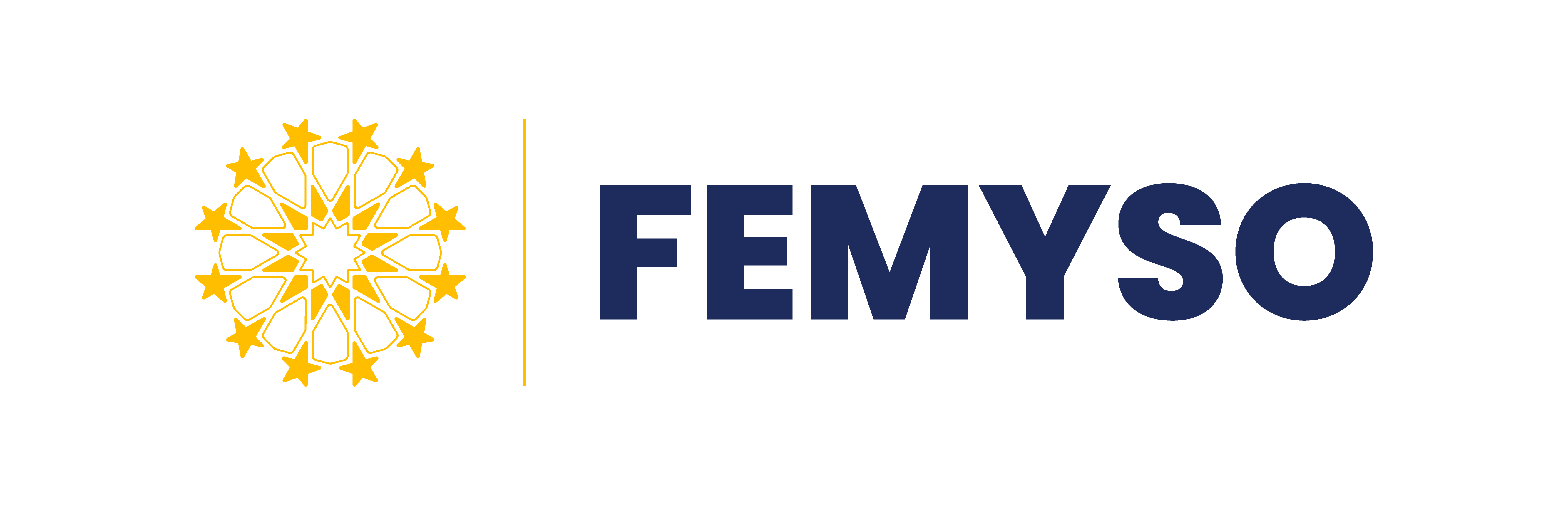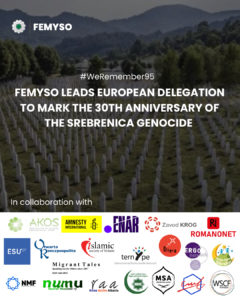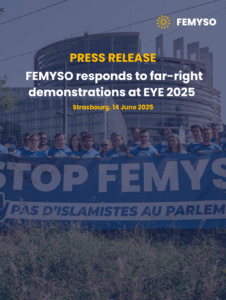Background
The European Commission published its White Paper on The Future of Europe – the Commission’s contribution to a new chapter of the European project – on 1 March 2017. The White Paper mapped out the challenges and opportunities ahead of us and the key drivers of change that need to be addressed in order to consolidate Europe as a common project.
In his State of the Union speech on 13 September 2017, European Commission President Jean-Claude Juncker outlined his vision for the future, to ensure the well-being and security of European citizens in an inclusive Union and in an increasingly multipolar world. At the December 2017, European Council first conclusions will help to decide on course of action to be rolled out in time for the EP elections in June 2019.
A broad debate across the continent, including the European Parliament, national Parliaments, local and regional authorities followed the publication of the White Paper. It has also seen the participation of 270, 000 citizens who attended 1,750 events across Europe, supported by the Commission.
The “Engaging Muslim Young People” event, hosted by Commission First Vice-President Frans Timmermans and European Parliament First Vice-President Mairead McGuinness was an opportunity to listen to the ideas and concerns of young Muslims from across the continent as Europe navigates its path and maps out its future. 28 Muslim students and activists in 17 Member States attended the event which was structured around 3 workshops.
Below are the 10 key issues raised by the participants, each followed by proposals for action to be taken by the European Union and its Member States.
Key issues raised and proposals for action
Workshop I – The Social Dimension of Europe
- Corporate Taxation
Considering that Europe’s social security systems represent the bedrock of Europe’s cohesive and prosperous societies, the EU and its Member States must put an end to aggressive tax planning and tax avoidance by certain corporations in line with the Commission’s Anti-Tax Avoidance Package of 28 January 2016.
- Ensure that tax is paid by companies where profit and value is generated;
- Ensure effective access to tax information between Member States.
- Education
In too many countries, teachers are still badly paid in relation to the fundamental role they have in today’s society. Furthermore, school curricula do not reflect the diversity of European history and its current society.
- Encourage Member States to increase investment in their education systems, including with regard to teachers’ wages, especially those working in primary and secondary education;
- Include Muslim heritage and history in education curricula, particularly in the field of history of science, in order to build a more accurate and representative collective memory.
- Social inclusion
While integration is often presented as a two-way process, integration strategies rarely promote migrants’ meaningful participation. Furthermore, urban design in several cities has exacerbated social segregation.
- Conceive integration policies as a two-way process, requiring active engagement from governments’ side;
- Implement policies and legislation to counter blatant segregation and gentrification in cities;
- Call on Member States to increase investment in social assistance and social policies;
- Adapt taxation systems in such a way to relieve the worst and less well off;
- Support business incubators in order to cultivate investors and citizens who have innovative ideas.
- Discrimination and racism
Structural discrimination and racism still exist in various Member States in various areas of life, including in education and employment. The situation of veiled Muslim women in the workplace is of particular concern following the CJEU judgment issued in Case C-157/15 Achbita of March 2017[1].
- Adopt legislation and policies to address the adverse impacts of the CJEU’s ruling on persons who wear visible religious clothing at the workplace;
- Encourage the use of anonymous job and internship applications;
- Take measures to increase the recognition of degrees held by third-country migrants.
Workshop II – Harnessing Globalisation
- The EU’s external relations with Muslim-majority countries
There is no significant control of companies based in EU Member States selling arms and weaponry to regimes in Muslim-majority countries. This state of affairs is particularly serious in the MENA region from where the majority of the refugees fleeing to Europe come.
- Implement binding legislation, preferably regulations, on arms embargos on European companies selling and exporting weaponry to countries in the MENA region. Recommendations on such matters are insufficient.
- The European Commission’s Diversity Strategy
While the European Commission is a global player and aspires to lead the way in diversity, its own internal personnel Diversity Strategy which aims to reflect the diversity of our society does not specifically address racial, ethnic and religious grounds as grounds worthy of focus alongside gender and disability.
- Amend this strategy to include racial, ethnic and religious grounds as grounds worthy of focus;
- Develop specific measures to ensure that all EU institutions become more diverse workplaces.
Workshop III- Muslims in Europe
- Data collection
Framework Decision 2008/913/JHA on racist and xenophobic hate crime and hate speech falls short of providing detailed indications on how law enforcement and judicial authorities should investigate and prosecute hate crimes.
- Continue to support and encourage Member States to ensure that bias is properly investigated and prosecuted in cases of anti-Muslim hate crime and to collect and disaggregate hate crime data to include anti-Muslim hate crime.
- Stigmatising speech in the media and politics
While recognising that the EU’s red line on free speech is ‘incitement to hatred or violence’ against groups or individual members of such groups, certain political discourse severely stigmatises Muslims, going as far as to question their status as EU citizens and to depict them as a threat.
- Openly counter and condemn stigmatising speech by politicians against Muslims when this occurs, thereby demonstrating the EU’s strong leadership and consistency with regard to stigmatising speech and hate speech;
- Adopt guidelines addressed to the audio-visual media watchdogs in each Member State in order to provide a comprehensive and pedagogical approach to media outlets in relation to issues related to Muslims.
- Rhetoric surrounding certain counter-terrorism measures
The rhetoric surrounding certain counter-terrorism policies and certain measures themselves have had the effect of stigmatising and generalising Muslims.
- Ensure that actions falling under the “Prevention” pillar of the European Union Counter-Terrorism Strategy and actions taken by national governments in the framework of counter-terrorism or state of emergency do not infringe on fundamental human rights and do not directly or indirectly alienate Muslims from their society by framing them as potential terrorists;
- Implement police guidelines against discriminatory practices, in particular ethnic profiling;
- Widen the scope of de-radicalisation and counter-terrorism measures and the accompanying discourse to apply across the political spectrum including far-right extremism, which is often fuelled by leaders and members of far-right political parties.
- The non-recognition of Islamophobia
While several governments and indeed, the European Commission employ the term “anti-Muslim hatred“, various Muslim organisations and NGOs support the use of the term “Islamophobia“[2]. The non-recognition and lack of understanding of Islamophobia is detrimental to countering its impact.
- Officially recognise Islamophobia as a specific form of racism, which is structural and affects visible Muslim women disproportionately;
- Raise awareness about Islamophobia by means of legislation and awareness campaigns;
- Adopt national plans against racism which address Islamophobia as a specific form of racism.
[1] The CJEU held that an internal rule of an undertaking which prohibits the visible wearing of any political, philosophical or religious signs does not constitute direct discrimination under the Employment Equality Directive 2000/78/EC. Muslim organisations have denounced the negative impact of this ruling on veiled Muslim women’s access to the job market. Other human rights defense organisations such as Amnesty International expressed their “disappointment” regarding the ruling and declared that it gives “greater leeway to employers to discriminate against women – and men – on the grounds of religious belief.”
Source: https://www.amnesty.org/en/press-releases/2017/03/eu-ecj-rules-no-violation-in-dismissal-of-women-for-wearing-headscarves-at-work/
[2] A commonly held definition employed by these NGOs and organisations defines Islamophobia as “Acts of violence and discrimination, as well as racist speech, fuelled by historical abuses and negative stereotyping which leads to exclusion and dehumanisation of Muslims, and all those perceived as such. Islamophobia has nothing to do with criticism of Islam”.



